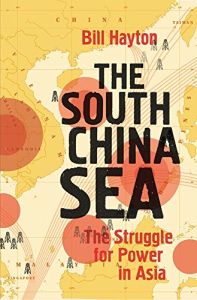Join getAbstract to access the summary!

Join getAbstract to access the summary!
Bill Hayton
The South China Sea
The Struggle for Power in Asia
Yale UP, 2014
What's inside?
Why do China and its neighbors squabble over the South China Sea? Tiny hot islands? Bird guano? Scanty oil? Territorial principles? Well, yes.
Recommendation
The South China Sea offers only modest deposits of oil and gas. The sea’s landmasses are little more than exposed coral rock and spits of sand. Still, for decades China has played hardball over the area, snatching islands from Vietnam and killing Vietnamese soldiers. Journalist Bill Hayton offers an intriguing blow-by-blow account that largely blames China for its bullying tactics, though he doesn’t come across as a China basher. The biggest challenge for readers is his arcane level of detail – the names of tiny islands and long-forgotten Asian politicians can become confusing. While richly written, Hayton’s timely tale has a couple of slow areas, and he devotes the first chapters to distant history, although interestingly. His treatise is well worth reading, since tensions in the area rage on. getAbstract recommends this seagoing saga to students, investors, multinational managers and policy makers seeking insight into an overlooked corner of the globe.
Summary
About the Author
Veteran reporter Bill Hayton covers Asia for BBC News and wrote Vietnam: Rising Dragon.


















Comment on this summary